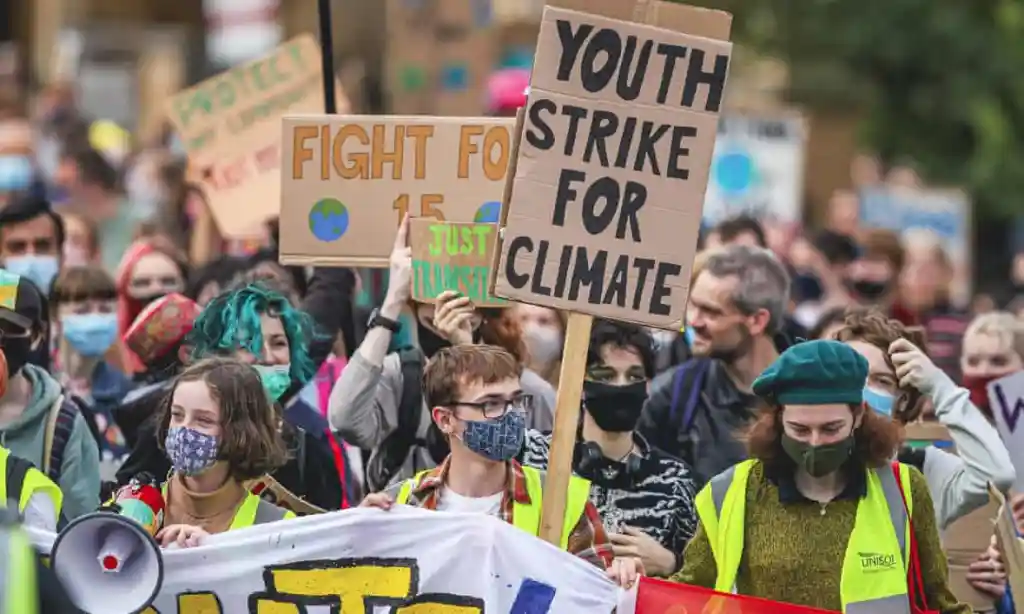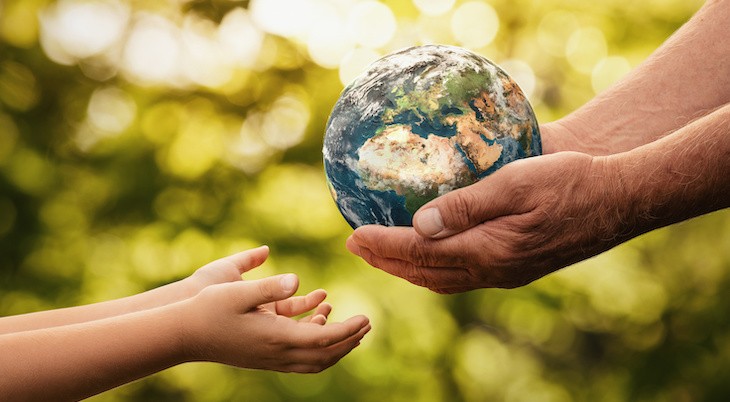Young People and the Pandemic and its Aftermaths
There is a single species that is responsible for the COVID-19 pandemic – us. As with the climate and biodiversity crises, recent pandemics are a direct consequence of human activity – particularly our global financial and economic systems, based on a limited paradigm that prizes economic growth at any cost. We have a small window of opportunity, in overcoming the challenges of the current crisis, to avoid sowing the seeds of future ones.
Professors Josef Settele, Sandra Díaz and Eduardo Brondizio and Dr. Peter Daszak in, COVID-19 Stimulus Measures Must Save Lives, Protect Livelihoods, and Safeguard Nature to Reduce the Risk of Future Pandemics

Young People and the Climate Crisis
“Build back better. Blah, blah, blah. Green economy. Blah blah blah. Net zero by 2050. Blah, blah, blah…This is all we hear from our so-called leaders. Words that sound great but so far have not led to action. Our hopes and ambitions drown in their empty promises.”
Greta Thunberg at Youth4Climate summit in Milan, Italy, on Tuesday September 28, 2021.

Young People and Digital Disruption
‘The so-called “gig economy”, symbolised by the explosion of services such as Uber, will rapidly expand the proportion of workers who are freelancers, while increasing automation in the workplace will reshape the skills and jobs for which [education institutions] will need to prepare students’…‘But Uber and its like are only “the first inning of disruption”…“The question used to be, ‘what will you do when you grow up?’ The question now is, ‘What will you do when the robots grow up?’”
Bruce Reed, co-chair of the Aspen Institute’s Future of Work Initiative, in Koziol (2018).

Young People and the Sustainable Development Goals
The United Nations Sustainable Development Goals (UN SDGs) provide a framework of action to address global challenges such as poverty, inequality, prosperity, peace, and justice to build more sustainable futures. The SDGs list seventeen interconnected goals to be achieved by 2030.
For youth activists, researchers and policy makers engaged with enabling young people to imagine, shape and advocate for a sustainable future, the SDGs are profoundly important, because they prompt us to to shift attention from an individual young person’s well-being, resilience and enterprise, to the ‘ecologies’ that can promote diversity, inclusion, social justice, diverse cultures of democracy, and sustainable futures.

Young people and Intergenerational Justice
In the context of the climate crisis, current ideas about intergenerational justice are focussed on contemporary populations of young people, and as yet un-born generations, and the futures that our past and present actions will visit on these generations.
In this sense, we are faced with the fundamental challenge of scale. What temporal and spatial scales are we working with in thinking about pasts, presents and futures, and the relationships between places, eco-systems, earth systems, the bio-sphere, and the planet – 7 generations? 2050? 1000 years?
Any education for sustainable, or regenerative, or environmentally just futures should think about a number of things, including:
- Moving beyond human exceptionalism – the ideas that humans occupy a privileged place in thinking and acting as we deal with the legacies of our pasts and presents and imagine our futures
- Exploring what lies beyond a methodological individualism – moving from the idea of individuals as discrete, autonomous, responsible organisms to consider what it means to be ‘entangled’ with others – the human, the biotic and the abiotic stuff of the bio-sphere and the cosmos.

Young people and regenerative futures
‘…Existing regenerative fields, including regenerative development, differ from prevailing approaches to sustainability in that they move beyond harm mitigation as an aspirational objective, instead seeking to achieve net positive benefits for integrated natural and social systems…
…The concept of regeneration is inherently layered, complex and evolving. It can have spiritual, ecological and even medical connotations. Regardless of context however, regeneration evokes hopeful themes of renewal, revival, rebirth and restoration. Regeneration involves more than doing no harm, it is an active, positive and continuous process…’
Kimberly Camrass (2023) Regenerative Futures: Eight Principles for Thinking and Practice, Journal of Futures Studies, 28,1.

